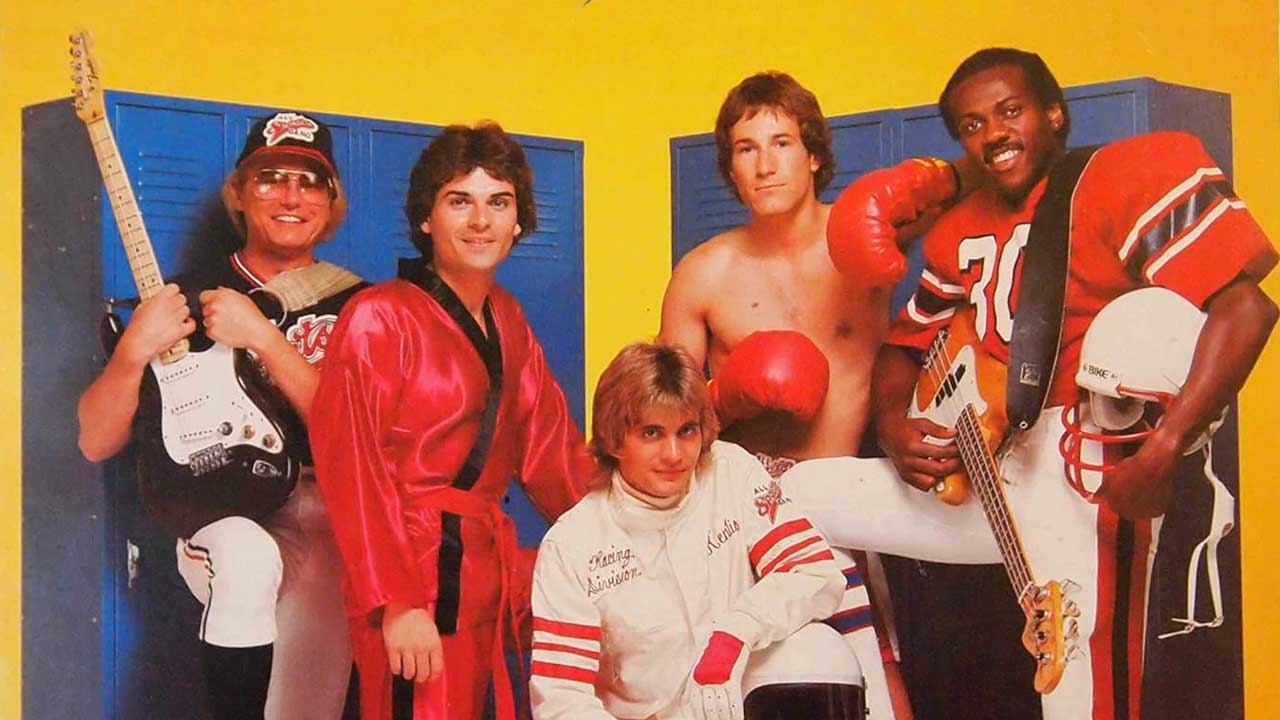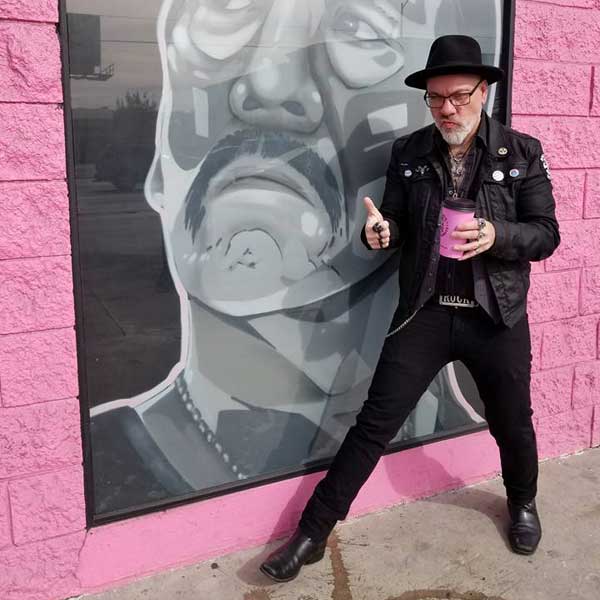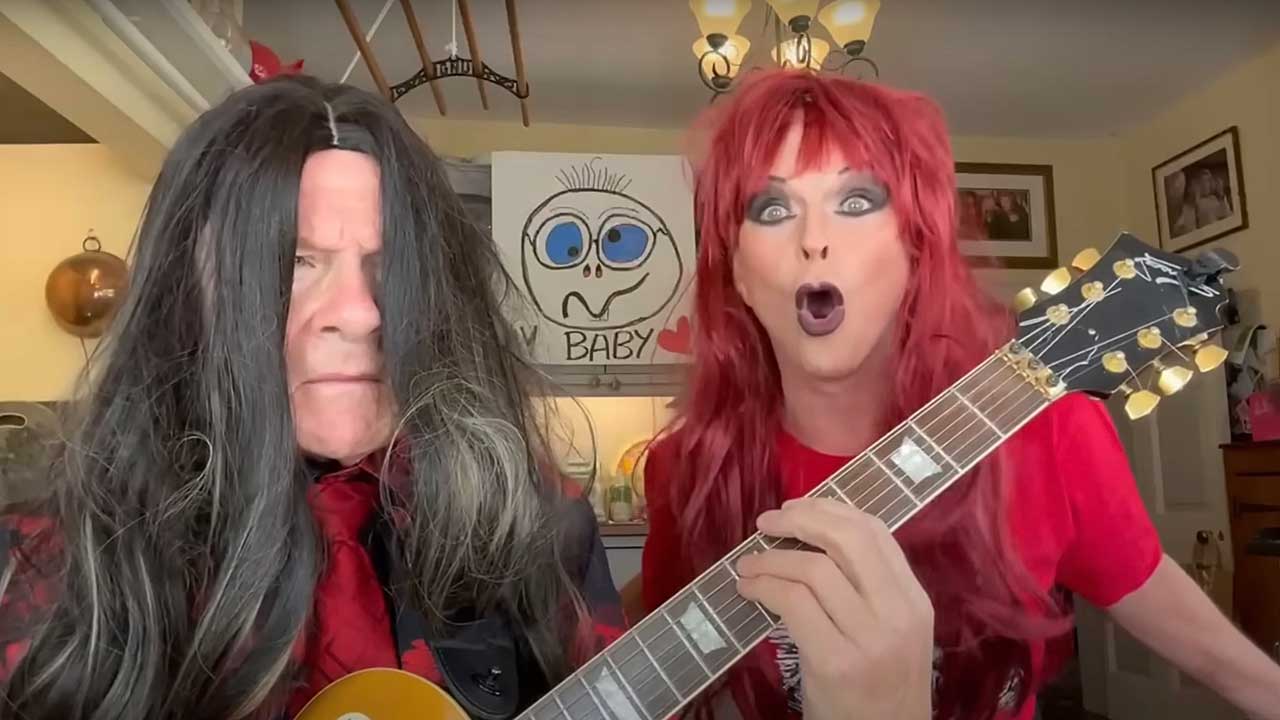Back in the 80s, someone thought it would be a good idea to launch a sports-themed AOR version of the Village People: The result was the All Sports Band
It was Ronald Reagan’s fault, really

In the USA in 1981, nobody cared about anything anymore. Everything was dead. All the wild and tantalising hopes of disco and punk had bled out into mall-ready R&B and lukewarm skinny-tie power-pop, respectively, and the only sounds blasting out of vans or Camaros on the streets were either the dirtbag metal of Ozzy and Iron Maiden or the relentless AOR mush of REO Speedwagon and Foreigner.
It was Ronald Reagan’s fault, really. Barely a year into his tenure as president of the United States, and already his cowboy posturing and trickle-down economics had emptied everyone’s pockets and had us all convinced that the Russians were coming to blow us into smithereens any day now.
And that’s where the All Sports Band comes in.
They didn’t spurt to life because we desperately needed something fresh and new, although we clearly did. They spurted to life because we were too weak to fight. In a stronger economy, with a feistier populace, the notion of a sports-themed ‘AOR Village People’ would be soundly defeated, sent back to the drawing room, suffocated in a plastic bag before it even got the chance to spread its sickly wings. But like I said, we were all pretty strung out that year.
To be fair, it wasn’t all Ronnie Raygun’s fault. Tracy Coats had a lot to do with it, as well. Coats was a Cleveland-based sound engineer with major pull in the industry, thanks to his knob-twiddling on Frampton Comes Alive, Kiss Alive I and II, and, crucially, the Village People’s Live And Sleazy. Work on the latter is apparently what put him over the edge.
“What if,” he thought, one feverish night in 1980, presumably while blasted on goofy pills, “I created my own Village People right here in Cleveland, only with macho straight dudes, and they played macho straight dude music, which is apparently REO Speedwagon at this point in time?” And goddamn it, that’s exactly what that twisted motherfucker did.
He recruited the Village People’s burly session bassist Alfonso Carey as the football player, and Cleveland semi-legend Cy Skuck as the guitar-wielding baseball player. Since drummers tend to sweat a lot, he assigned Jimmy Clark to be the boxer/drummer – who played in his own boxing ring! He hired another Village People session man, Chuck Kentis, to play the keyboards in a racecar driver suit, and topped the madness off with Michael John Toste as the karate-kicking frontman (he was originally supposed to be a hockey player, but he kept falling off his skates).
Sign up below to get the latest from Classic Rock, plus exclusive special offers, direct to your inbox!
With his gang of nylon-abusing supervillains in place, Coats locked them all in together in a house in the wilds of Cleveland to bash out some athletic rockin’ jams (but little did they know NWOBHM band Raven had already patented the ‘athletic rock’ concept).
Coats signed with Radio Records, a short-lived, mysterious entity responsible for misfiring hardrockers The Hellcats and the maddening Stars On 45 records: 7-inch singles of sped-up Beatles medleys set to a disco beat. True beacons of high art, in other words. Many thousands of All Sports Band promo albums were shipped to radio stations across the US. Meanwhile, using his significant pull in the biz, Coats landed his wacky enterprise on two plum TV gigs: Dick Clark’s rapidly fading American Bandstand show, and weekly lip-sync extravaganza Solid Gold.
And that’s where it all went to hell. When the American public finally got to see what lunacy their apathy had recreated, they shrugged. They shrugged almost as hard as the radio stations laughed, especially when the band made appearances dressed in full costume. Or uniform, to be more exact. The record tanked, and the TV spots dried up, but Coats took one more fitful stab, releasing a final single, a zingy power-pop cover of Gary Puckett & The Union Gap’s 1968 hit Young Girl. That didn’t work either, and the All Sports Band (and Radio Records) were no more. The band never even bothered touring.
Okay, so the All Sports Band was a stupid idea. But was it a bad record? Well, yeah. Imagine Ambrosia shot up with elephant tranquilisers. Now imagine a sedated Ambrosia wearing goddamn karate outfits. That’s what it sounds like.
There were two sorta hits on All Sports Band. The first, I’m Your Superman (No.94 for a week), is a gooey, half-speed mess. It’s four minutes long but feels like four hours. The second, Opposites Do Attract (No.99), fares a little better, sounding like a syrupy Rick Springfield knock-off.
Elsewhere, there’s a hilarious disco-tinged glam-slammer called Jet Set, a fun/stupid doo-wop/power-pop mash-up (Hit-N-Run), a few standard AOR fistwavers, and plenty of gloopy ballads. The band are proficient, but there’s no sense of identity or direction. And worst of all, nobody sings about sports. Goddamn it, it’s the All Sports Band. You couldn’t throw one song in their about dodging balls or making passes?!
After the quick and painless death of the All Sports Band, most of the members simply went back to session work. Car racing keyboardist Kentis joined Rod Stewart’s band. Jimmy Clark went to play with Joan Jett, among others. Singer Michael John Toste slipped out of the karate outfit and is now an "International Destiny Coach" and host of the popular radio show Your Day of Destiny, providing "unconventional insight to successfully navigate through these challenging times." Sadly, Toste was unable to successfully navigate a way forward for the All Sports Band.
Inexplicably, the All Sports Band album was widely bootlegged all over the world in the 80s and found small but dedicated fanbases in Japan, Germany and the Philippines. There were rumours of a deluxe remastered re-release, featuring unheard songs from their aborted second album. A reunion, with the original members jamming their middle-aged bodies into their old uniforms, could not have been far behind. Sadly, that never happened. Or maybe not so sadly. It really was a stupid fuckin’ idea.
The original version of this feature appeared in Classic Rock presents AOR 12, published in September 2014.
Classic Rock contributor since 2003. Twenty Five years in music industry (40 if you count teenage xerox fanzines). Bylines for Metal Hammer, Decibel. AOR, Hitlist, Carbon 14, The Noise, Boston Phoenix, and spurious publications of increasing obscurity. Award-winning television producer, radio host, and podcaster. Voted “Best Rock Critic” in Boston twice. Last time was 2002, but still. Has been in over four music videos. True story.

